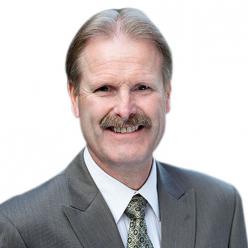Our experts Chris Rivera and Laura Bechard have discussed HR Hiring and Managing People to Achieve Higher Firm Performance in this podcast. Listen here to learn more.
#BKOT 41: BUILD A KICKASS OFFSHORE TEAM
HR HIRING AND MANAGING PEOPLE TO ACHIEVE HIGHER FIRM PERFORMANCE
Hosted by: Chris Rivera, Director Client relations, Entigrity Offshore Staffing
Guest: Laura Bechard, CEO & Business Growth Advisor, Provision Business Advisor
Transcript:
Chris: Alright. Thanks everybody for listening in for the #BKOT built a kick offshore team. We're on episode 41. And today we have an awesome guest out of Calgary, Canada, and in Alberta, Laura Bechard and she's the owner of Provision Business Advisors, Laura. Thank you so much for taking time out today and joining us. How's everything going?
Laura: You're welcome, Chris. My pleasure to join you today. Thanks, I am pretty great. We've got a nice dusting of snow. So it's looking like Christmas here in Alberta.
Chris: Well, man, yeah, it's been ice cold here in New York, not normal, but at that time of the year but it always reminds us to visit family and, and enjoy this as we wrap up this year 2021 a lots going on with staffing as I usually get 10 calls a day and speaking to clients all throughout north America.
And staffing is a, it's always been a challenge, but this year it's unique where there's just simply no talent. So today we want to talk about, you know, human performance and hiring people to achieve higher firm performance. Right. So, but first I want you to talk a little bit about how your business and how you got started and what you do for clients?
Laura: Yeah. Thanks, Chris, for the Provision Business Advisors is a boutique consulting firm here in Calgary, Alberta, and we work with CPA firms in helping them drive their firm performance by leveraging their talent. And, and so that's one of the core programs that we offer is a practice management program, specifically looking at their people's talent and how do they really specifically leverage that talent to get more results?
I'm a CPA myself by background with an MBA in finance and also a master's in education. And I got into this work really because I saw it over and over with my colleagues that are CPAs that were in public practice that complained bitterly about hiring this top talent, and then not getting the performance that they expected from them. And so this seemed to be a niche area that we could specialize in.
Chris: Yeah, absolutely. I don't think a lot of firms kind of evaluate their talent and identify, you know, maybe they could do some reskilling or upskilling per se. I mean, how do you go about, when you meet with a firm? what's kind of the first thing that you're doing, and helping them out with their talent.
Laura: Really the first thing we do is figure out where they're at and what kind of processes they do have. Because if you know, one of the things that we realize is whatever results we're getting good, bad, indifferent, it's because of what we have been doing. And some of those things that we have been doing have been working for us, and some things have not been working for us. And so it really it's that diagnostic because what we do at the very beginning is, is working with, often the managing partner or the partners of the firm, or if there's an office manager, we often included as well in the initial conversations to really look at the diagnostics of what, why are we not getting the performance that we, we anticipate getting in the firm? And then we, from there, once we've isolated the potential we've guessed, we've perceived that what we think the initial constraint is, then we can look at designing the import, the performance improvement initiatives that are aligned to that constraint.
Chris: I'm curious to know when you're approaching this with a firm and they have a very loyal group, right? We're talking maybe 15 years, 20 years. Because I see that quite a bit and also they're starting to infuse some, some youth, so maybe some interns and some, graduates as well. How do you see the response from these loyal associates to them and are they really receptive? Are they open to change or, I mean, can you talk a little bit about that?
Laura: We definitely have diversity in the profession and some are open to change and some are not open to change. So some are saying, thank goodness. It's about time that we made some of these changes. And of course others are, are just very comfortable in doing the, what doing what they have been doing and really aren't looking to embrace any changes.
So we have the same diversity in, in the younger demographic as we do in the, in those, those loyal long term individuals. And what historically we have been attracting to the accounting profession in general are people who really don't like change. You know, we like to, when the income tax act changes or, you know, there's something else that changes, we're more okay with that. But when other things change we're, we're not really too great about that. We like processes, we like knowledge. We often want to be perfectionists. And so when things change too much, it throws a, you know, kind of throw quite the rich into the way they have been managing their practice when there are changes. So, the profession is attracting more people that are not so much that, you know, process orientated individual, but historically that's, who's been attracted into the profession.
Chris: Right? Yeah, change is constant. If you've been doing the same thing for 20, 30 years, that's awesome. Right. It's working, but what I've seen at some point in time, there's gonna be an adjustment. There's gonna be, you have to adapt, something's gonna happen. Right. We just had this, in an insane, pandemic, just go on and really put, the eyes on the virtual remote environment, which the accounting industry was just thrusted into. Right. I remember myself when I used to say the word remote or virtual four years ago, starting this, I mean, 50% of my calls would end.
Laura: Yeah. And they, and they really had to adapt except change from the technological perspective. Right. So, you know, it used to be, you know, it used to be this, their servers and, and their desktop computers. And so they've had to really transition and accept a lot of change from a systems perspective. And so they're, you know, they're, they've almost had enough change fatigue because the tech stack keeps changing and that's enough. No, no more change.
Chris: I know. I see it all the time and, and you could love technology. You could hate it, you gotta embrace it because it's the reason why we're here today too. I mean, I completely understand that. So now, when working with a firm, do you find that when, they're kind of, advanced in that technology space and have a solid tech stack in place it's easy to work with, or do you find that could be challenging or do you find that firms that are adopting to more, the technology piece is, is a little bit easier, a little bit harder to work with? Or can you share your thoughts on that?
Laura: Oh, well, some of the initial things was, let me look at it really a, a kind of a change readiness sort of assessment. So we look at how ready is the organization for change? And so it does look at factors like how many changes have been implemented in this organization in the last little while and how well did those go? Because if the organization has a lot of experience with failed, change attempts, then it's very difficult to come in with another, you know, flavor of the wheat kind of thing. And, people will roll their eyes and say, oh yeah, let's see how long this one lasts. And so it, it really, we do start with that sort of sizing and that sort of how red is the organization for change. And then really it's really that strategic. How do we roll this out?
How do we socialize? What's the communication? Because before we have, before we can implement any changes, we have to make sure that we have done the planning effectively. We've done the readiness effectively before we start implementing these changes. And so it's, if you want the change to actually stick, sometimes you have to go a little slower than you normally would want to go, because we do have competing priorities. We still have to get the files out the door. We still have to get the latest patch on our, on the update, on our tech system. And with that integration, that's not working. And so it's not the only thing on anybody's plate at any time. And that's where sometimes it goes off the rails, is unrealistic expectations of how quickly we can implement these changes and get the intended results?
Chris: I agree. And when I get up the right mindset too. So that's, that's always a starting point, but now as far as hiring and managing, right? What do you think could be more difficult or are they equally difficult to implement or which one should focus on more than the other, or did they get equal treatment? I'm curious to know about that.
Laura: Well, when we talk about these constraints, that can be dampening firm performance. You know, we look at how we drive profitability in our firms? Well, we drive them a course through focus on sales and the revenue generation and the cross selling and the upselling and what are our services that we're offering and advisory versus compliance. And we have all of those conversations. Then we can look at costs and our expenses, how do we control those? But the other two levers are productivity and cash flow.
And so when we look at productivity and what's constraining the human per performance, the productivity, we have three primary buckets where those performance constraints and one is opportunity. So it's sort of people are there and available to work, but there's no work for them to do. So if you, if you go to work and there's nothing for you to do, and you TWI your thumbs all day, well, you're unproductive.
You're not moving that forward. So that's usually the first one we look at because if it's an opportunity constraint, that's the easiest one to fix, if it's an opportunity constraint. So when we think about the second bucket, which is really the capability, that's where we're looking at things like hiring. So not only are we hiring the right individuals, the right process, and then do we have an employee development program plan? That's going to take that intern and develop them in a way that's intentional through to develop their competencies as a higher level technician in the firm. And ultimately maybe into a management role, that we look at work processes as part of that, we look at re resources.
So, you know, what's, what's, what's act, is there a capability constraint here that then we can look at? So if we find out and often when I am working with professional firms, I find out they hire based on experience or technical skills rather than personality value culture fit.
And then they end up with wrong hires. So they haven't focused initially on getting the individual that will be a good fit for the firm, given the culture and everyone else in the firm and what their values are. And so they may have people with great technical skills, but they don't fit. And so those people, you know, are going to damage the culture in the firm if they stay on. And so when you do the opposite and you're, you're finding the great people and the good fit for people, because many of the times, if we've got a good, the development program, we can develop, we can fill the skill gaps a lot faster than we can fill the culture gap.
Chris: Well Said, yeah!.
Laura: So that's, that's sort of where the hiring comes in. And if so, if it's not a capability problem, then we look at that third bucket, which is the environment or the context with which the performance takes place, and that's where we look at work groups. So like, is there, if you want a certain performance to occur, are peers or colleagues dampening that behavior, are supervisors or leaders dampening that behavior, or are they helping improve the behavior? So are we getting good feedback? Are we actually, do people know what they're supposed to be doing? Are we good at setting expectations? Are we good at telling our employees not only what we want them to do, but the constraints that they need to work within that. So you give 'em a bookkeeping file and just say, do the bookkeeping, but you don't say it should take you approx this many hours.
And then you get the billable hours, which are off the charts. So you haven't given them enough detail around the performance that's expected, so they meet your expectations, and so in that category, we're looking at more leadership training management training, teaching indivi, teaching managers, how to have accountability conversations, teaching them how to have good conversations at the beginning to set clearer expectations.
We're talking about things like job aids and reminders and checklists, and what are the kinds of things that we can give our employees so that they have a better chance of meeting the expectations that we have for perf performance. And so it's not sort of an either or managing or hiring, it actually might be both where it may be one, it may be one or the other.
Chris: Wow, I find that fascinating. And one thing, one takeaway I get is the employee development. I think that spot on, especially now is more important than ever because, and just from experience and speaking with firms, especially in smaller cities that they do the recruiting and the, and they bring 'em on board and then two years they leave and then they start the cycle again. And then yeah, that has a bad effect as far as the culture there.
And then just kind of burn out for the firm owner or the managing partner whoever's, you know, kind of in charge of that onboarding. And so when, especially now when a firm, they have to make themselves very attractive to work for, I believe because it's a new mindset with millennials, gen Z, coming into play here, and it's more about, what can your firm do for me and why should I work for your firm? It's no longer about, you know, I got 160 hours a week and I, the most billable hours and that type of mindset's gone. And so the key thing with employee development is that you wanna make your firm very attractive. And so having those having awareness of that, and then, yeah. What can you do for the employees?
Laura: Yeah. That, and that's sort of where my say the masters in education comes in, right? Because of employee development, the teaching, the learning, and, you know, I'm having conversations with one of my clients just last week. And, I joined her and two of her employees and she said, you know, can we, you come and have a, let's have a career conversation. So we're not having a conversation with her employees. And she's a firm of five bookkeepers, technical people, not huge, you know, single owners. And we're having conversations with the receptionist about her career path. Like where do you see yourself in the firm? And then we're having conversations with another, you know, junior new grad finance, where do you see yourself in the firm?
Because, you know, as the owner, she says, well, if you wanna be doing X or Y, now my job is to make sure that works there for you, because I wanna retain you. I wanna keep you, I, you know, I don't want you to, to get really good at your job and then quit here as a place for you to go in the organization. So if I know what you wanna do now, my job is to make sure that works there and ready for you when you're ready to do it. Totally different mindset.
Chris: Absolutely. And then now the talent is again, speaking with client, they're either very underqualified or, I mean, they're just overqualified and, and there's not, there's none of that, that someone in the middle that can grow and develop within a firm, it's either, you know, polar opposites now. And so, what's brought into light about, a huge spotlight in regards to offshore staffing. So, where do you see offshore staffing? Where do you see it now in going forward, and potentially integrating into firms?
Laura: Offshore staffing really isn't new. We're just seeing it in, in more and more different areas. I mean lots of industries have been doing it for a long time. And then when we're looking at service based industries, we have the luxury of not actually having to set up a headquarters in another country, whereas with manufacturing, you've had to really build a plant and invest significantly in other countries. So, I mean, for me, talent is talent and whether it's offshore talent or it's domestic talent, it talent and, and people are people. And we do need to make sure that we are bringing out the best in our people. And we do that by actually getting to know our people by getting to form relationships with, with our individuals. And I think, you know, historically some of our professional service firms and our CPA firms have not treated their people well, have just, you know, there's a dime dozen and I can replace you next tomorrow.
And, you know, they hold the old, you know, the old Arctic being, being equated to slavery and, you know, I'm working for nothing and I'm putting in all these hours. And, and so, I mean, like whether it's a law, like the legal profession has been the same, like it's these article students, we've always, it's, it's sort of the right of passage. Like you have to be treated like crap to be able to get through the professional program.
And, and then it's almost well, that's the way it is. So then when you're in that position, you're doing the same thing to the next generation that's coming up and no one really likes it. And there isn't, there is no scientific data to back up that if you treat people badly, you're going to get optimum performance out of them. And so like, why do we continue to do this? Why do we continue to not invest in our people to really not give them a reason to stay and grow and develop our firms and the, you know, the approach that we've been taking to managing a number of our individuals has been, we're getting work to rule, we're getting compliance, we're getting minimum performance out of them. And we're not getting that discretionary effort. That's going to really get our firms performing above the industry average
Chris: I love what you said, talent is talent, and being in this remote virtual environment has made everyone realize you could hire outside your city, heck outside your state or province and shoot outside your country. Right. And so, yeah, it's made everyone realize, but the key thing is, as we've been talking about it's one team, right?
You don't want to create barriers or create, you know, domestic and offshore type of battles by any means. It's all one team and everybody's more working together for the firm's goal and vision and what they want to do for the future. And I believe if you have that type of environment, you know, everyone's gonna wanna study, everyone's gonna be happy. You have the right development in place for the employees. They see themselves growing within the firm. Now, you know, you're very attractive to work for. And it's like, Hey, I wanna work for your firm. Right. And so, especially in that small to midsize market.
Laura: Yeah. You're gonna be known as the firm where people grow to be developed, not the firm where people go to die.
Chris: Right. Spot on.
Laura: So do you wanna be the firm that takes players and generates A plus players? Or do you wanna be the firm that A player turns them into minus players then, but now attracts B players? So it's very much your culture and people are shopping around, as you say, they're checking out the, the firm's, the firm's culture is, is just as important as the experience that people are going to get there. And people are more aware of the options they have and how mobile people are far more mobile and virtual work, whether we're talking about it being offshore or domestic virtual work is really exploding, as we all know. And even in my practice you know, if I restricted my practice to only working with firms that are in my geographic area, it would limit the ability to grow my firm. And so, you know, we can work with firms globally.
Chris: Absolutely. Yeah. It's the whole idea. This is a really good insight. I appreciate your time. And joining us today in our audience and giving some insight into this and invest in your people right. And work with your people. And it's more important than ever to treat them right. Treat them fairly. And if you do that, then, you know, you'll have loyal staff and, and for as long as it may be.
Laura: If you don't wanna be self-employed then the survival and the success of your firm depends on your people.
Chris: Yeah. Yes. Agreed. Before we leave though, any final thoughts to share with our audience today, but it's been really good, but any final thoughts?
Laura: I think just because people are preparing to get into their busy seasons and busy times. I mean, we're always happy to, have a, to have a conversation, to give you that little, that one or two little things that you could maybe do to have a little less pain through some of those busy seasons. So feel free to reach out and connect with us and happy to build a conversation and just wishing everyone happy holidays and whatever you celebrate, be safe and have a happy prosperous 2022.
Chris: Yes, absolutely. Laura, thank you so much for taking time out, everyone. Please check out Provision Business Advisors. The services that she provides are extremely valuable, and really had a fun conversation. They are learning some things by themselves. Again, thank you for taking time out for everyone else. We'll be back with another episode soon and for now take care. Be good.
Entigrity™ is a trusted offshore staffing partner to over 600+ accountants, CPAs, and tax firms across the US and Canada. Our flexible and transparent hiring model helps firms of all sizes hire staff for accounting, bookkeeping, tax preparation, or any other task for 75% less cost. As a firm 'run by accountants, for the accountants', Entigrity captures the hiring needs of accounting firms most precisely, providing staff that works directly under your control and management, still, you are left with least to worry about compliance, payroll taxes, overheads or any other benefits.





